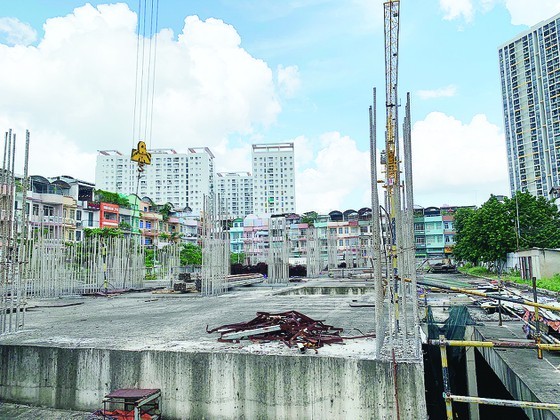
Cho Lon Investment and Import-Export Corp. (Cholimex) has entered the equitization process since July 15, 2016; yet until now, the final settlement for the transformation from a state-owned business to a joint stock one has not finished. The existing problem is the identification of state capital in the company after equitization. Land-related matters like the value of the lots compensated for projects approved from 2014 backwards, compensation prices, land clearance costs, fees for capitalization of loan interest for the initial investment stage of Vinh Loc Industrial Park (member of the business) have not been greenlighted; and thus, the equitization expenses are not approved.
This severely affects manufacturing and trading activities of Cholimex since it can never finish the equitization even though it has operated like one for 6 years. This leads to any lots previously signed under the name of a one-member limited liability company not being able to change the name on land use right certificates, meaning the inability to enter a land lease contract with a joint stock company.
Meanwhile, according to Decision No.5835/QD-UBND issued on November 28, 2014, HCMC People’s Committee allocated 2 lots of 629B-631-633 Nguyen Trai St. of District 5 (annual rental payment) and 1368 Vo Van Kiet St. of District 5 (land purchase with the land use right certificate No.BA 399423 on September 19, 2011 for 50 years) for Cholimex for equitization purposes.
Until now, functional agencies have not completed the final settlement for the conversion, and Cholimex is not allowed to re-enter the land lease contract for the first lot. Hence, the Cholimex Building project here cannot be carried out, resulting in financial difficulties for the business itself.
Regulations state that after 30 days entering equitization, all conversion procedures from a state-owned enterprise to a joint stock one must be finished. Yet, like Cholimex, which has operated under the joint stock model for 6 years, many businesses have not had their name for land use updated by functional agencies. All operations are therefore halted, and they now endure huge debts.
Saigon Real Estate Development No.5 JSC. (SG5) is facing an even more serious state. Their main trading product is real estates, yet because they cannot change their formal name, and cannot enter transactions.
Officially entering equitization since 2016, it is still on the way now owing to problems in land value assessment, company value identification. Although these activities were done by equitization consultation units and an independent land price assessment organization, the land valuation certificates are waiting for the HCMC Department of Natural Resources and Environment to assess before submitting to HCMC People’s Committee for approval.
To accelerate the equitization process, the city leaders suggested a temporary approval of the land valuation certificates by the assessment organization, followed by a public IPO auction. The winning price will become the formal price for the HCMC Department of Natural Resources and Environment to assess and submit to HCMC People’s Committee for approval before SG5 is formally a joint stock company (Article 4 of Decision No.5823/QD-UBND on November 9, 2015).
“No matter how the price assessment turns out, the state capital can never be lost, since the state still owns 99.78 percent of the company’s capital. However, it is this tardiness of 6 years that turns the company into serious depression and a waste of state capital”, said one leader of SG5 frustratedly.
SG5 is now burdened with hundreds of billions of VND debt and has to pay back all money this July. The reason is its investment of VND250 billion (US$10.8 million) in Binh Dang Residential Building project in District 8, signed before 2016 under the name of a one-member limited liability company. The company in 2016 was changed to a joint stock one, but the name in the contract was not updated by the HCMC Department of Natural Resources and Environment. This means the second stage of the project cannot be launched as the HCMC Construction Department is not allowed.
In 2019, the project was stopped permanently. In May 2021, Chairman of HCMC People’s Committee requested that the HCMC Department of Natural Resources and Environment urgently update the name of the unit using the land on the land use right certificate in that May. Yet until now, nothing is done, the SG5 has to request helps from all functional agencies.
From an enterprise with a revenue of over VND1,700 billion a year ($72.2 million) 5 years before equitization, SG5 now is in huge debt and might go bankrupt any moment.
Obviously, a useful equitization policy has forced many enterprises to the verse of bankruptcy, plus ineffective use of state capital, just because tardiness in processing administrative procedures of functional agencies.
Statistics from the HCMC Business Innovation Management Board reveal that 32 state-owned businesses have enter equitization from 20133-2016; however, until now no final settlement for conversion of them is finished. A similar case is happening with 48 enterprises from 2016-2020.
























